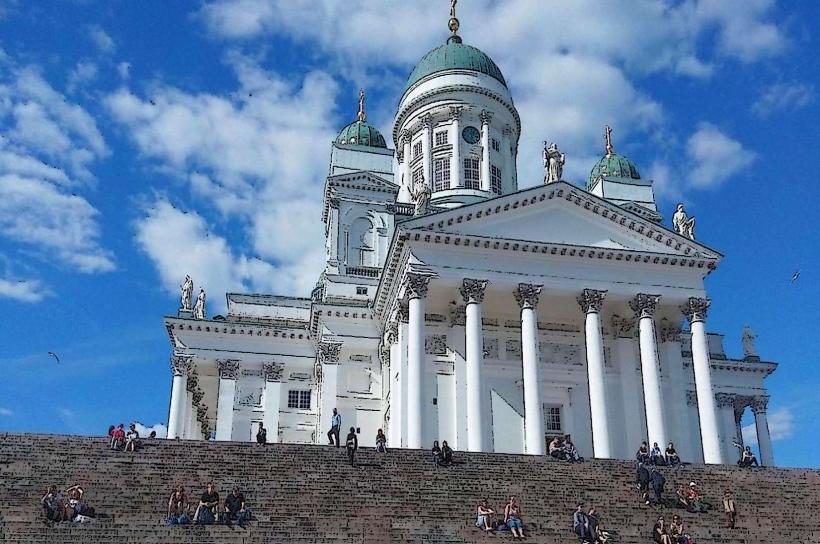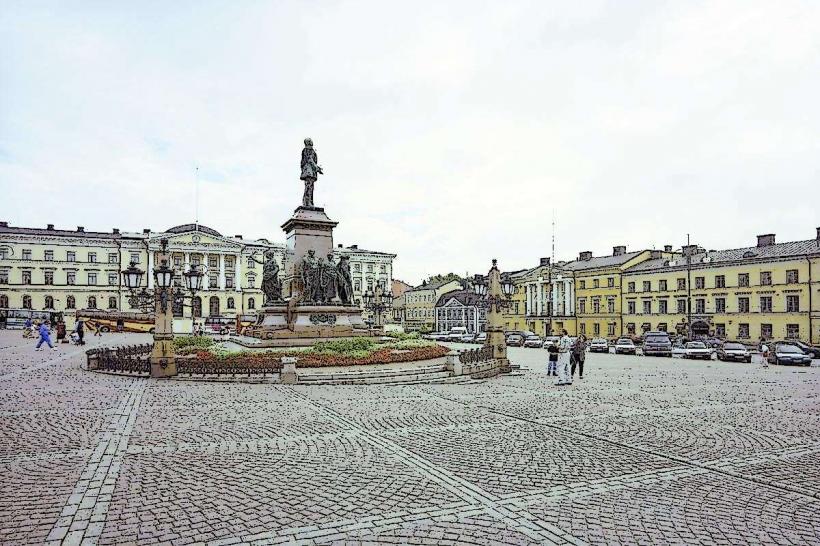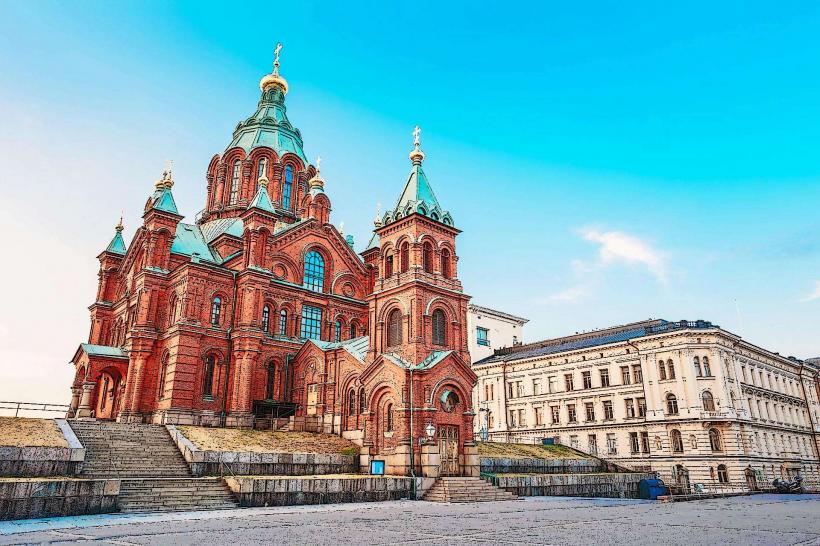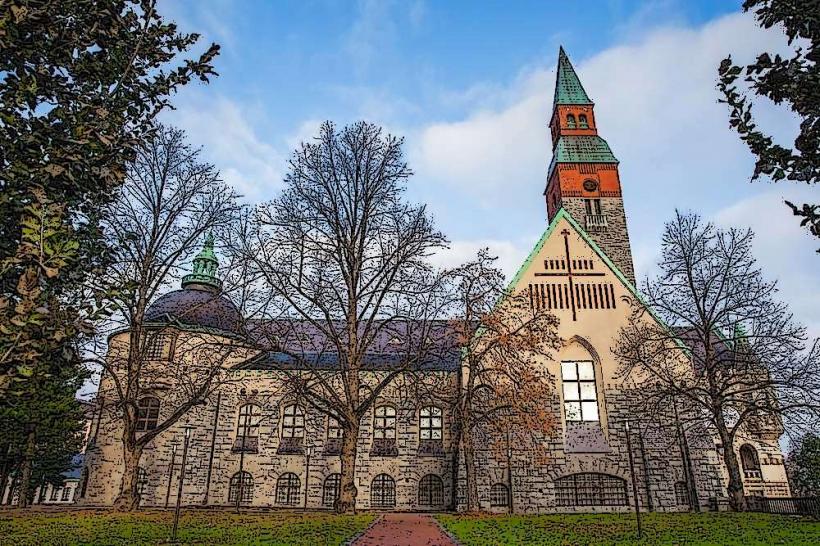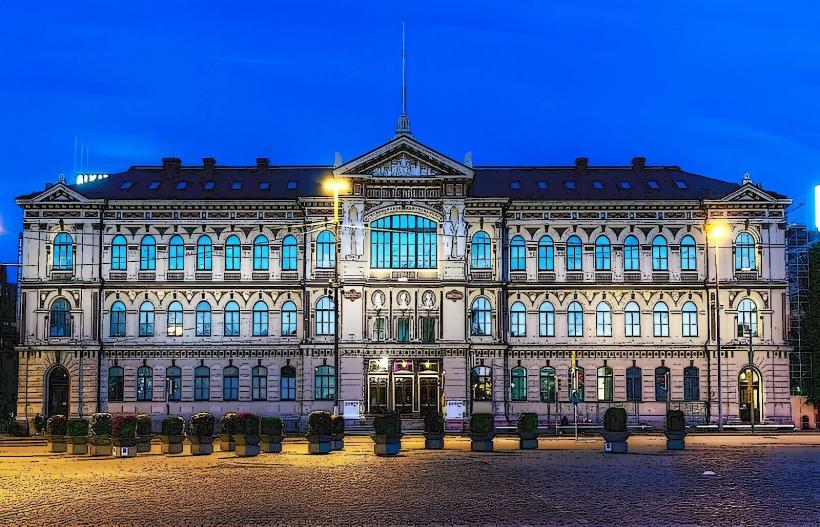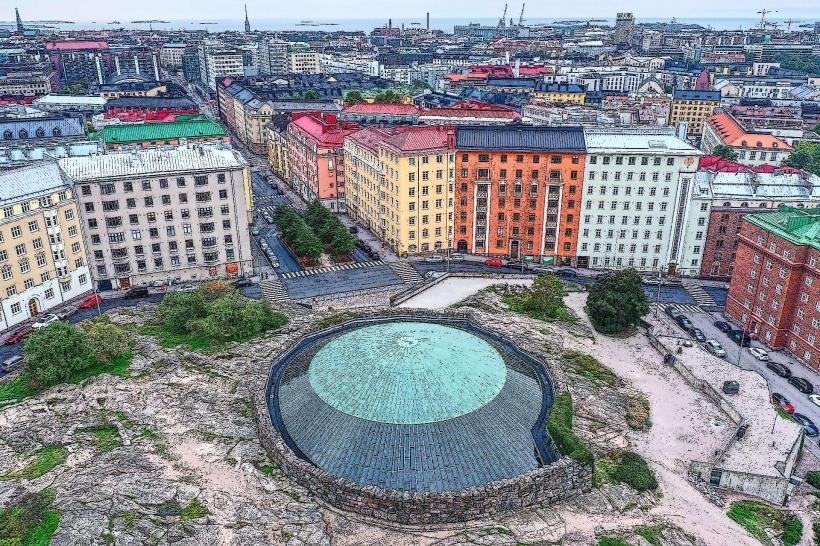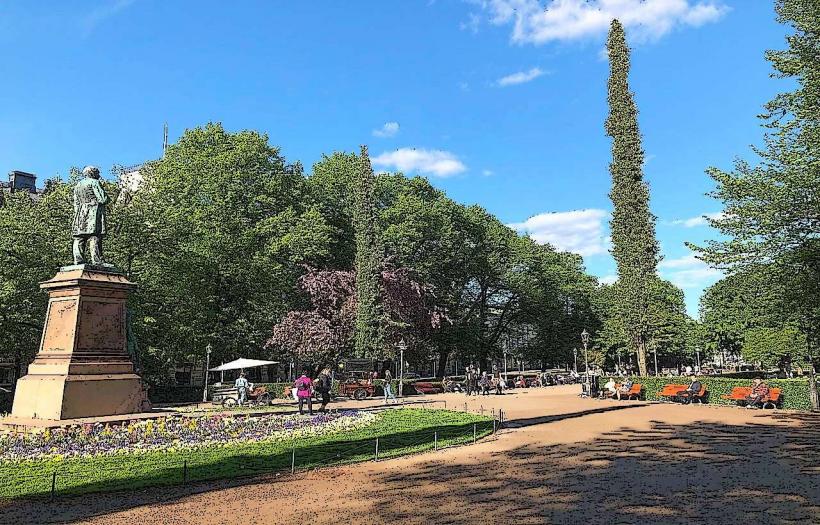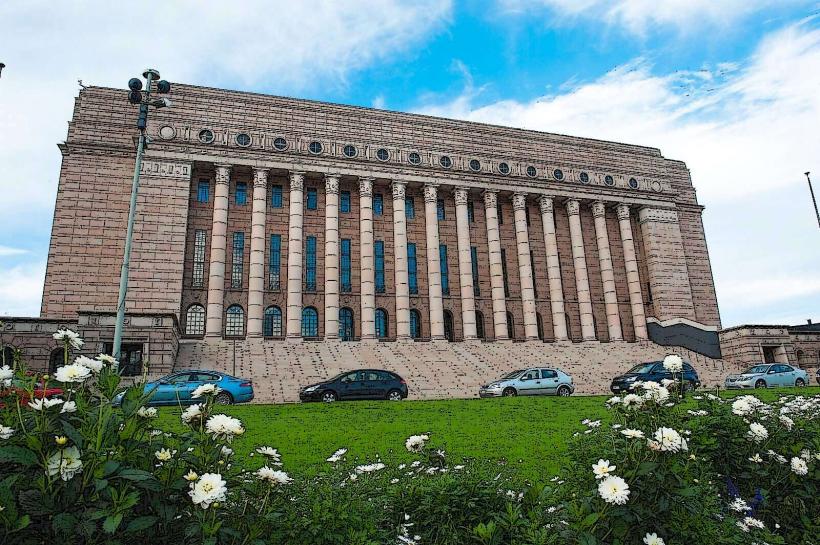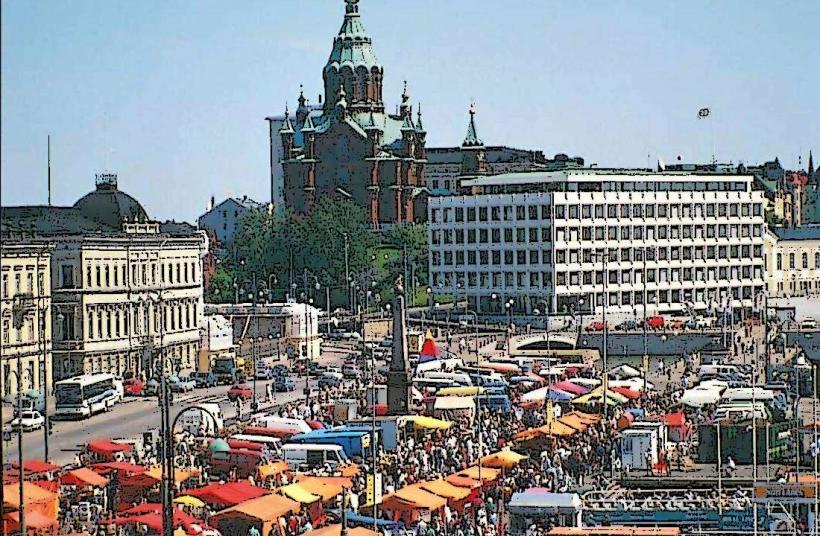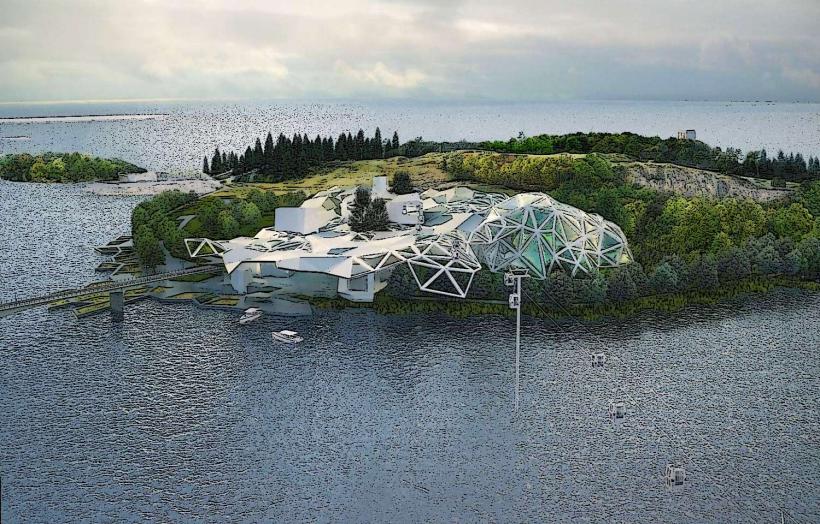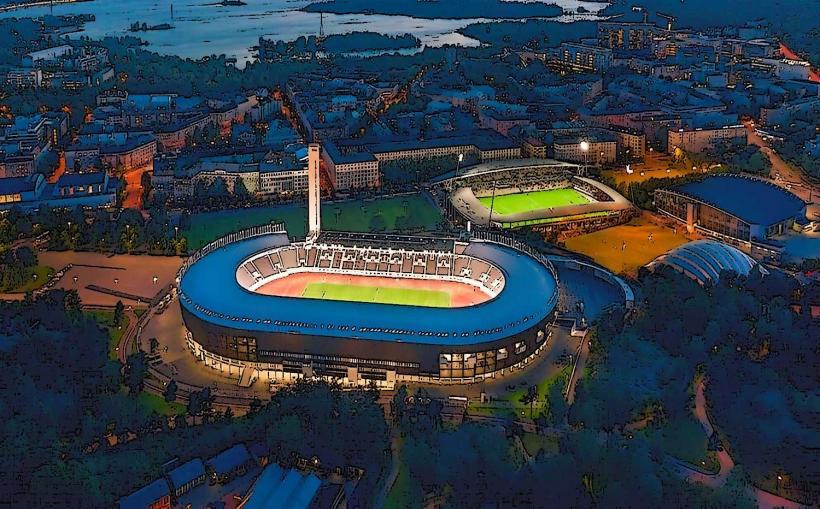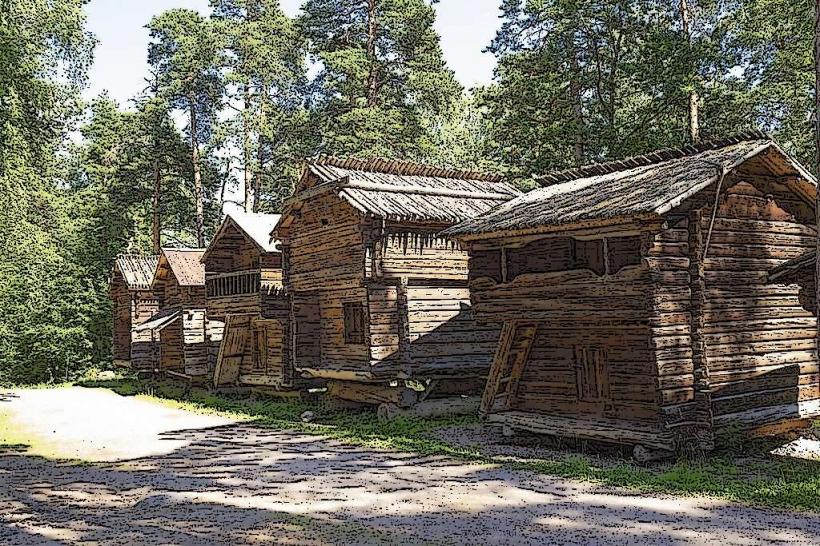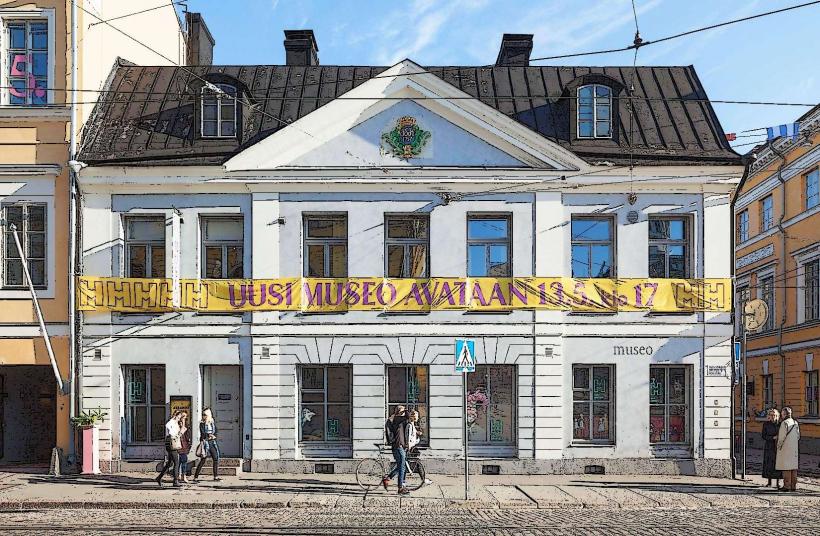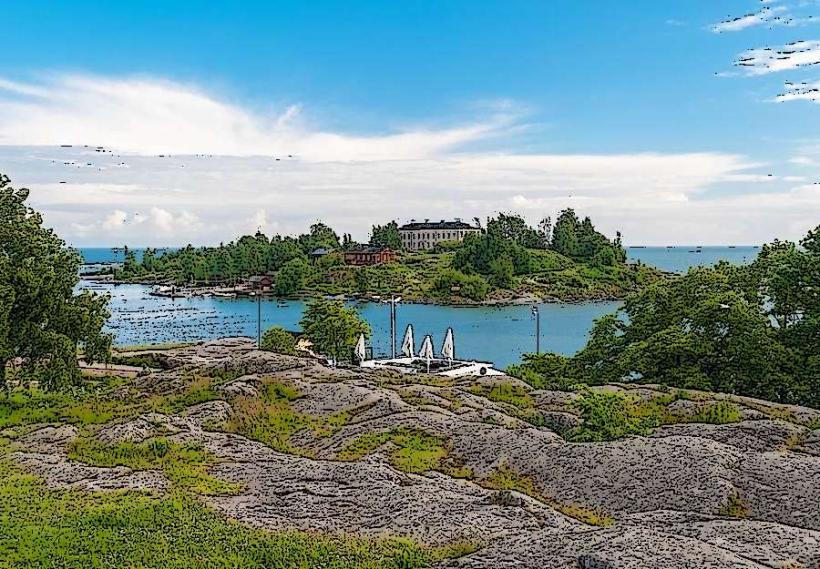Information
Landmark: Suomenlinna Sea FortressCity: Helsinki
Country: Finland
Continent: Europe
Suomenlinna Sea Fortress, Helsinki, Finland, Europe
Suomenlinna (Finnish for "Castle of Finland") is a historic sea fortress located on a group of islands off the coast of Helsinki, Finland. One of the largest and most impressive maritime fortresses in the world, it has played a key role in Finland's military history and remains a popular cultural and tourist destination today. Here are the main details about Suomenlinna:
Historical Background
Suomenlinna was originally built by the Swedish in the mid-18th century to defend the Kingdom of Sweden's eastern borders against Russian expansion. Construction began in 1748, and the fortress was initially named Sveaborg (meaning "Fortress of Sweden"). It was designed by Augustin Ehrensvärd, a Swedish engineer, who incorporated advanced military architecture for its time.
After Finland became a part of the Russian Empire in 1809, following Sweden's defeat in the Finnish War, the fortress came under Russian control. It was renamed Helsingfors Fortress (after the Russian name for Helsinki) and was expanded to strengthen Russia's defenses in the region. In 1918, after Finland gained independence from Russia, Suomenlinna became part of the newly established Finnish military infrastructure.
Today, Suomenlinna is a UNESCO World Heritage site, recognized for its historical significance and well-preserved architectural features.
Architectural Features
Suomenlinna is a large complex of buildings, walls, and tunnels spread across several islands. The fortress is renowned for its strategic location on the islands of Suomenlinna, Kustaanmiekka, Lonna, and Iso Mustasaari, among others. Here are some of its key architectural and defensive features:
- Walls and Fortifications: Suomenlinna features extensive stone walls, bastions, and redoubts, designed to protect the fortress from naval attacks. The bastions are connected by thick walls and tunnels, with various defense structures still visible today.
- Guns and Cannons: Many of the fortress’s artillery pieces, including large cannons and guns, are still present and on display. Some of these guns were once used to defend Helsinki from Russian or British attacks during the 19th century.
- Tunnels and Passageways: The fortress includes a network of tunnels, some of which were originally used for defense, storage, and communication. Many of these tunnels are now open to visitors.
- Buildings and Barracks: There are several historical buildings within the fortress, including barracks, military offices, and warehouses. Some buildings are still used for residential and administrative purposes, while others house museums and cultural institutions.
Historical Significance
Suomenlinna has played a central role in Finland's history, particularly during times of conflict and political upheaval:
- Swedish Era (1748-1809): The fortress was originally built to protect Swedish interests in the region, especially against the growing threat of Russia. It served as an important naval base and defensive structure for the Swedish fleet.
- Russian Era (1809-1917): Under Russian rule, Suomenlinna was expanded into a massive fortress and naval base, playing a key role in Russia's defense strategy. During this period, it was also a site for Russian military administration and power projection in the Baltic Sea.
- Finnish Independence (1918-present): After Finland declared its independence from Russia in 1917, Suomenlinna remained a significant military asset. During the Finnish Civil War (1918), the fortress was briefly a battleground between the White and Red forces. Today, it is no longer used for military purposes but has become a symbol of Finnish national heritage.
Suomenlinna as a Cultural and Tourist Destination
Today, Suomenlinna is one of Finland's most popular tourist destinations, attracting visitors from all over the world. It offers a unique combination of historical, architectural, and natural beauty, with the following attractions:
- Museums and Exhibitions: Suomenlinna is home to several museums that provide insight into its history, including the Suomenlinna Museum, the Maritime Museum, and the Toy Museum. These institutions showcase artifacts related to the fortress’s history, its role in various conflicts, and the maritime heritage of the region.
- Nature and Scenery: The islands of Suomenlinna offer beautiful natural landscapes, with lush greenery, rocky shores, and scenic walking paths. Visitors can enjoy guided tours or explore the islands independently. The surrounding waters and views of Helsinki make it an idyllic setting for relaxation and sightseeing.
- Cafés and Restaurants: There are several cafés and restaurants on the islands, where visitors can enjoy Finnish cuisine and local delicacies while taking in views of the sea and the fortress.
- Cultural Events: Throughout the year, Suomenlinna hosts a variety of cultural events, including concerts, theater performances, and festivals. These events attract both locals and tourists, enhancing the fortress’s role as a cultural hub.
Accessibility
Suomenlinna is easily accessible from the city center of Helsinki by ferry. The ferry ride takes about 15 minutes, and there are frequent departures throughout the year. Once on the island, visitors can explore the fortress on foot, by bicycle, or by taking guided tours that provide in-depth knowledge of the history and architecture of the fortress.
Preservation and Modern Usage
Suomenlinna is actively maintained by the Suomenlinna Foundation, which works to preserve the historical integrity of the site while making it accessible to the public. Many of the original structures are carefully conserved, and the fortress remains a symbol of Finland’s military heritage.
While Suomenlinna is no longer a military site, it is occasionally used for ceremonial purposes. The fortress continues to serve as a reminder of Finland’s complex history, spanning several centuries of Swedish, Russian, and Finnish influence.
Conclusion
Suomenlinna is a remarkable site that offers a window into Finland's past, from its strategic military significance to its cultural and historical legacy. As a UNESCO World Heritage site, it stands as a testament to Finland's rich history, showcasing a blend of natural beauty, military architecture, and cultural heritage. Whether you're interested in history, architecture, or simply enjoying the scenic beauty of the islands, Suomenlinna is an essential part of any visit to Helsinki.

